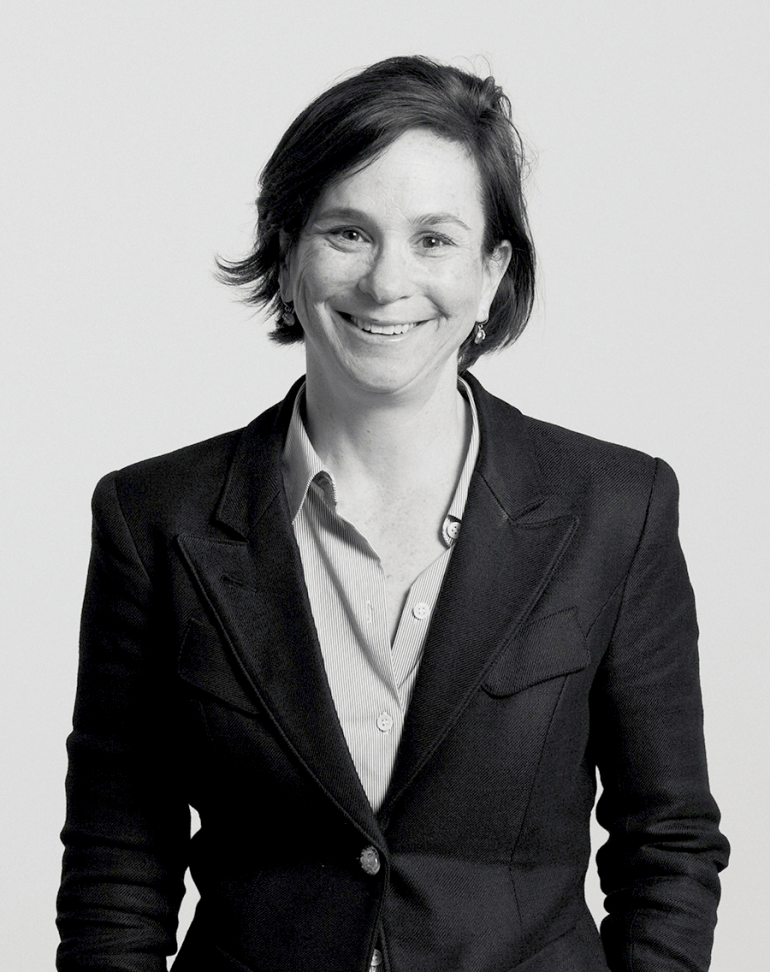Behind every brand delivering simpler experiences for customers is a leader who recognizes the inherent value in keeping things simple. In Simplifiers, Margaret Molloy interviews business leaders who put simplicity to work. Here, Margaret speaks with Blair Shane, Chief Marketing Officer, Sequoia Capital.
Margaret Molloy: What is Sequoia Capital?
Blair Rosenblatt Shane: Sequoia is a venture firm dedicated to helping daring founders build legendary companies from the beginning idea stage to IPO and beyond. The firm was founded almost a half-century ago, and we try to use our tribal knowledge to help founders of the next generation of startups succeed.
MM: And what does Sequoia Capital stand for?
BRS: Sequoia doesn’t have a tagline per se, but the closest thing that we have is what we stand for: the creative spirit, the underdog, the resolute, the determined, the defiant—that outsider with something to prove. We stand for that target audience of true believers who have new exciting ideas that can change the world.
MM: How do you deliver on that promise every day?
BRS: What sets us apart is we don’t think of ourselves as investors; we think of ourselves as company builders. How can we use the knowledge that we have to help a founder scale more quickly? The difference is that we embrace change. We never rest on our laurels, and we aim to stay as hungry and as hardworking as the founders we support.
MM: What role, if any, does simplicity play in delivering on that promise?
BRS: Both focus and ruthless prioritization can drive simplicity. We focus on doing a few things exceptionally well. Those things typically boil down to serving founders and serving our limited partners, most of whom are nonprofit.
MM: What benefits has Sequoia experienced from simplifying?
BRS: All great companies are founded on a strong culture, and our culture is defined by embracing individuality and teaming to win. Our singular ambition when we team is to help companies thrive from idea to IPO and beyond. When we’re at our best, we have that single-minded focus on company-building to help founders transform their markets, and then by doing so, they fuel great causes, like the endowments of universities and research hospitals that are our limited partner base. It’s incredibly powerful for the employees at Sequoia to know that they’re not only helping a founder with a product or service that can change the way we all work and consume but in doing so, has benefits to these nonprofits.
MM: As a marketing leader, how do you keep things “simple” for your team?
BRS: From a macro perspective around annual planning, we force prune and its tied to embracing change. Each year, I ask my team to eliminate about 20% of their budget and projects that aren’t working hard enough. Now, this is tough because the projects may be working, but they aren’t performing as well as other things. It’s essential to prune; otherwise, you cannot make room for new. That’s the first thing, and it’s always the most laborious exercise.
I also require every functional leader to propose at least two new game-changing ideas. We may only do one or neither of them, but it forces people to dream and step out of their comfort zone. Collectively, we end up with a mix of the core things that are working, and it make room for one new thing that forces us to move forward.
On a micro basis, we practice something we call the Top 3, where each person on the team is clear about the three most important things they need to do this week to move the business forward. Urgent and non-important tasks are sometimes easier to tackle. This exercise forces us to make time for both the urgent/important and non-urgent/important tasks so that we can create positive change.
MM: Personally speaking, what’s the most recent simple customer experience that inspired or impressed you?
BRS: Doordash. As a working mom, the ability to order a healthy dinner within two clicks and get it on the table for my family at least three nights a week is fantastic! You order from the menus of local restaurants in your neighborhood; you tap a button, and the Dasher gets it to the house. You can also schedule an order in advance, which helps on those busy days with 5pm meetings.
MM: What are some of the biggest mistakes that brands make with regards to simplifying?
BRS: There are two things. First, they focus on themselves and do not listen attentively. Second, they stay rooted in their past without preserving the best and letting go of the qualities that do not serve them well.
MM: Any recent examples of a difficult decision that you made at Sequoia Capital, that you had to make for the sake of simplicity?
BRS: The most challenging decision typically involves people or the team. At Sequoia, we still run pretty lean; hence, we need to both work collaboratively and maintain individual accountability. Up-and-comers on my team want increased exposure that I, of course, want to give them, but that said, there is no room for overlapping roles. Sometimes, it’s hard for people to stay in their lane of expertise and still speak up if there’s essential value to add outside.
Simplicity is difficult to maintain when you don’t enforce both a division of labor and a thoughtful message for collaboration versus a free-for-all.
MM: What does “simplicity” mean to you?
BRS: At its core, simplicity means staying focused and not bothering with anything superfluous. At its best, simplicity means being in flow. When you’re in that flow, there’s the beauty of results.
MM: What advice would you give other brands trying to simplify?
BRS: Listen hard to your customers, your employees, and anyone who has solid, credible feedback you can learn from. Don’t react right away; take it in, and then decide what is best.
Don’t be afraid to make hard choices, which ties back to pruning.
Lastly, don’t have regrets; try new things early; validate intuition. Change before someone else forces you too. My biggest fear is an intelligent junior person feeling the need to be perfect before they share an idea, and that can very well be the worst thing for the organization.
MM: Anything else?
BRS: Brands can force hard conversations about strategy, and I want all marketers not to shy away from doing that. Don’t just do what you’re told. Communicate well and raise opportunities based on listening to your customer and passionately connecting them with your product and service.
MM: Thank you, Blair.
This interview has been edited and condensed for clarity.
Know a Simplifier or would like to be included in the series? Please recommend an executive for my next interview: [email protected]


